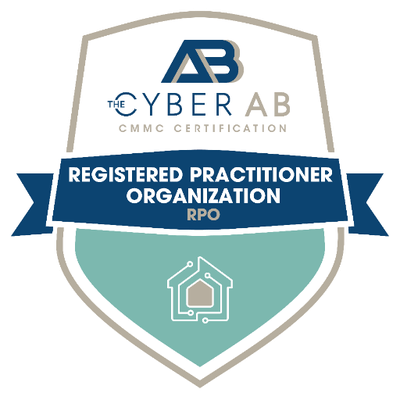Our privacy policy is located here.
Regulations and Compliance
See how risk-based Managed Detection & Response can help you with compliance — regardless of your industry
NYDFS Security Regulation FAQ
A CONVERSATION WITH RON PELLETIER, FOUNDER and CHIEF CUSTOMER OFFICER, PONDURANCE, AND RICHARD BORDEN, COUNSEL, WILLKIE FARR & GALLAGHER LLP
- The cyber regulation standards and if there are any commonalities
- What you need to do to meet SEC requirements
- The difference between privacy regulations and information security regulations
- What are the Department of Labor (DOL) guidelines, and how does it apply to cybersecurity
- How a cybersecurity provider can help you meet new security regulations
Insurance and Legal Partners
Pondurance works with legal and insurance firms, brokers and agents to help their clients improve their cybersecurity posture and reduce cybersecurity risks.
Reach out to us to learn more partners@pondurance.com
If you suspect you have an active breach, please contact us at 888-385-1720.

Keep Up With the Latest Blogs on Compliance and Regulations
Webinar
Reducing the Costs To Comply With CMMC

Successfully Navigating Through CMMC: What You Need to Know

Achieving CMMC 2.0 Compliance

Are you processing controlled unclassified information for Department of Defense clients and required to meet Defense Federal Acquisition Regulation Supplement requirements? Pondurance is here to help you achieve CMMC 2.0 compliance and better understand the gaps in your processes, capabilities, and practices.
Are You Looking for Specfic HIPAA Regulations?
Additional Resources
PCI DSS Compliance Made Simple by Pondurance
As part of Pondurance’s cyber risk and regulatory compliance assessment services, we offer a focused review of your IT systems environment to identify areas of risk and maturity as they relate to Payment Card Industry Data Security Standard (PCI DSS) compliance. READ HERE
PCI DSS
Hundreds of millions of people worldwide pay for goods and services with credit or debit cards every day. Any organization working with cardholder data (CHD) must implement security policies, technology, and processes to ensure its systems are protected from breach and theft of CHD. Because of the critical nature of this data and the potential impact it can have on the lives of so many, the Payment Card Industry Data Security Standard (PCI DSS) was established to regulate protection standards for merchants, financial institutions, point-of-sale vendors, and technology developers that create and operate the global infrastructure for processing payments. Compliance with PCI DSS is mandatory for these businesses and costly for those who violate the standards (even if they do so unknowingly).
As part of Pondurance’s cyber risk and regulatory compliance assessment services, we offer a focused review of your IT systems environment to identify areas of risk and maturity as they relate to PCI DSS compliance. At the conclusion of the assessment, Pondurance either conducts a Self-Assessment Questionnaire (SAQ) or delivers a Report on Compliance (ROC) accompanied by an Attestation of Compliance (AoC). If your organization is out of compliance, we offer a tailored, prioritized approach to helping you get compliant quickly.
The Pondurance PCI Assessment is conducted by our team of security experts, partnering directly with you, and guiding you through the process. A team of Pondurance experts embeds with your multidisciplinary teams and analyzes your current PCI DSS compliance posture, documenting our results in the Payment Card Industry Security Standards Council (PCI SSC) SAQ or ROC template. This outlines a set of desired outcomes for proper handling of CHD with categorized references to how they can be achieved.
What is PCI DSS in Cybersecurity
A PCI assessment refers to the process of evaluating and validating an organization’s compliance with the Payment Card Industry Data Security Standard (PCI DSS). PCI DSS is a set of security standards designed to protect cardholder data and ensure the secure handling of credit card transactions.
The PCI DSS is maintained by the Payment Card Industry Security Standards Council (PCI SSC), and compliance with these standards is mandatory for any organization that handles, processes, or stores payment card data, regardless of its size.
There are several types of PCI assessments, Pondurance provides including:
Self-Assessment Questionnaire (SAQ): This is a self-assessment tool provided by the PCI SSC that helps merchants and service providers determine their level of compliance based on their specific payment processing methods.
On-Site Assessment: Conducted by a Qualified Security Assessor (QSA) for Level 1 merchants (those processing over a certain number of transactions annually) and for service providers.
Report on Compliance (ROC): This is an extensive assessment report performed by a QSA for Level 1 merchants and service providers. It involves a detailed review of the organization’s security controls and practices.
Internal Security Assessment: Some organizations conduct internal assessments to evaluate their PCI compliance but, in most cases, they are not sufficient for official compliance validation.
What is the PCI compliance Process? How do I become PCI Compliant?The PCI assessment process typically involves evaluating various aspects of an organization’s security practices, including network security, access controls, encryption, physical security, and policies and procedures related to cardholder data protection. The assessment helps identify any vulnerabilities or gaps in security that need to be addressed to achieve and maintain compliance.
Like other cybersecurity and compliance practices and the use of assessments, PCI compliance is an ongoing process, and organizations need to regularly assess their security measures, maintain documentation, and address any identified issues to stay compliant with the PCI DSS. Non-compliance can result in financial penalties, loss of card processing privileges, and reputational damage.
If you are a merchant or service provider seeking to undergo a PCI assessment, it’s recommended to work with a QSA or a qualified security professional to ensure a thorough and accurate evaluation of your organization’s PCI compliance.
What is PCI DSS Compliance
PCI DSS compliance, also known as Payment Card Industry Data Security Standard compliance, is an indispensable framework for businesses involved in payment card transactions. Established in the early 2000s through collaboration among major card brands like Visa, Mastercard, American Express, Discover, and JCB, the PCI Security Standards Council was formed to enhance payment card security guidelines, giving rise to PCI DSS.
At its core, PCI DSS comprises 12 requirements meticulously crafted to safeguard consumer data and thwart fraud during payment card transactions. These requirements span various facets of organizational operations, including building and maintaining secure networks with firewalls and encryption measures, protecting cardholder data through stringent storage policies and access control, conducting regular security system tests, and establishing robust information security policies.
To effectively implement the PCI DSS compliance framework, many organizations seek guidance from third-party experts such as Pondurance. These experts specialize in developing comprehensive programs tailored to client companies, ensuring adherence to PCI DSS requirements and long-term compliance by identifying vulnerabilities or potential threats in their systems.
A PCI DSS requirements checklist serves as a valuable tool for organizations aiming to meet the necessary standards. It offers a clear roadmap for implementing each requirement, empowering the organization’s management team to monitor progress efficiently. Engaging third-party assessors like Pondurance provides an objective perspective on the organization’s security posture and guides them toward adopting industry best practices.
In today’s digital landscape, where cyberattacks are increasingly sophisticated, PCI DSS compliance holds paramount importance. Compliance not only safeguards sensitive customer data but also shields organizations from costly penalties associated with non-compliance. By partnering with third-party experts possessing extensive knowledge of payment card security, businesses ensure continued compliance and maintain a secure environment for their customers. In essence, PCI DSS compliance transcends regulatory obligation, fostering consumer trust and safeguarding the global reputation of organizations.
In addition to its foundational role in securing payment card transactions, PCI DSS compliance serves as a cornerstone for cybersecurity companies specializing in mitigating cyber risk. As the threat landscape evolves, top cybersecurity companies recognize the pivotal role of PCI DSS in informed security practices and cyber risk management. By aligning their services with PCI DSS requirements, these companies offer tailored solutions to enhance organizations’ security posture, prioritize risk mitigation strategies, and fortify defenses against potential cybersecurity threats. Through proactive vulnerability management and threat intelligence, cybersecurity companies assist businesses in reducing cyber risk and safeguarding sensitive data, thereby reinforcing their overall security posture and resilience against evolving cyber threats.
Cybersecurity Frameworks List
Cybersecurity frameworks play a pivotal role in managing and mitigating various risks inherent in information technology. In today’s digital landscape, safeguarding sensitive data, ensuring regulatory compliance, and enhancing overall IT security are paramount objectives.
Among the multitude of cybersecurity frameworks, the Payment Card Industry Data Security Standard (PCI DSS) stands out as one of the most prominent. PCI DSS provides comprehensive guidelines for businesses handling cardholder information, ensuring secure transmission, storage, and processing of payment data to mitigate the risk of financial fraud and data breaches.
In the healthcare sector, compliance with the Health Insurance Portability and Accountability Act (HIPAA) is essential. HIPAA mandates stringent rules for safeguarding protected health information (PHI), making cybersecurity compliance indispensable for entities managing sensitive medical records and personal health details.
Financial institutions in New York State are obliged to adhere to the NYDFS Cybersecurity Regulation (23 NYCRR Part 500). This regulation mandates annual submission of an NYDFS cybersecurity certificate of compliance, showcasing adherence to specific security measures aimed at shielding consumers’ confidential information from cyber threats.
Furthermore, regulated financial firms must comply with SEC cybersecurity requirements enforced by the U.S. Securities and Exchange Commission. These requirements necessitate robust cybersecurity policies and procedures to safeguard investor information from unauthorized access or misuse.
The NIST Cybersecurity Framework, developed by the National Institute of Standards and Technology, offers organizations a voluntary guide for structured management of cyber risks. Renowned for its flexibility and alignment with industry standards, many entities adopt NIST Cybersecurity Framework compliance practices to bolster their security posture.
In conclusion, adopting appropriate cybersecurity frameworks is crucial for upholding the integrity of sensitive information, meeting regulatory requirements, and maintaining a robust security stance. Frameworks such as PCI DSS, HIPAA, NYDFS Cybersecurity Regulation, SEC regulations, and the NIST Cybersecurity Framework serve as indispensable resources for businesses navigating the complex landscape of information security compliance.
PCI DSS Asssessment
In the realm of cybersecurity and data protection, PCI DSS Assessment emerges as a pivotal component in safeguarding cardholder information. The Payment Card Industry Data Security Standard (PCI DSS) comprises a set of security standards meticulously crafted to shield sensitive payment card data from potential threats and vulnerabilities. Originating from collaborative efforts among major card brands like Visa, Mastercard, and American Express, this standard holds paramount significance in fortifying data security across diverse industries.
Central to PCI DSS compliance is the imperative for third-party assessments, with organizations such as Pondurance playing a pivotal role. These assessments serve as critical checkpoints for businesses, enabling them to pinpoint potential gaps in their security posture and enact requisite measures to fortify critical data. Pondurance’s expertise in cybersecurity assessments and remediation aligns seamlessly with the multifaceted process of evaluating PCI DSS compliance.
The initial phase of PCI DSS assessment entails determining your organization’s classification level within the standard’s parameters. This classification delineates the specific Self-Assessment Questionnaire (SAQ) applicable to your business, serving as a foundational tool for gauging compliance independently.
Subsequently, contingent upon your organization’s scale and transaction volumes, a Report on Compliance (ROC) may be necessitated. The ROC, conducted by a Qualified Security Assessor (QSA), rigorously verifies adherence to all pertinent PCI DSS requirements. Leveraging the expertise of firms like Pondurance facilitates navigating this intricate process with precision and proficiency.
Upon the successful conclusion of the SAQ or ROC, organizations are mandated to submit an Attestation of Compliance (AoC). The AoC serves as tangible evidence of adequately addressing all requisite requirements outlined in the applicable SAQ or ROC. Pondurance offers invaluable guidance during this phase, ensuring meticulous documentation and adherence to proper submission protocols.
In essence, forging partnerships with seasoned allies like Pondurance expedites the journey toward PCI DSS compliance. Their holistic approach to evaluating distinct organizational needs and delivering bespoke solutions ensures the perpetuation of a resilient security posture. By harnessing their expertise, organizations fortify the protection of sensitive payment card information, engendering heightened customer trust and fostering sustained business growth.
Related Topics
- Penetration Testing Vs Vulnerability Assessment
- Cybersecurity Compliance Framework
- Cybersecurity For Small Business
- Soc As A Service
- Cybersecurity Compliance
- What Is Penetration Testing
- Nist Cybersecurity
- Cybersecurity Penetration Testing
- Vulnerability Scan
- Cybersecurity Resources
- Cybersecurity Risk Assessment
- Nist Compliance
- Cybersecurity Risk Management
- Cybersecurity Assessment Tool
- Cybersecurity Healthcare
- Cybersecurity Consulting Firms
- Cybersecurity Assessment
- Risk Based Cybersecurity
- How To Prevent Malware Attacks
- Cybersecurity Consultant
- Nist Csf
- Penetration Testing Companies